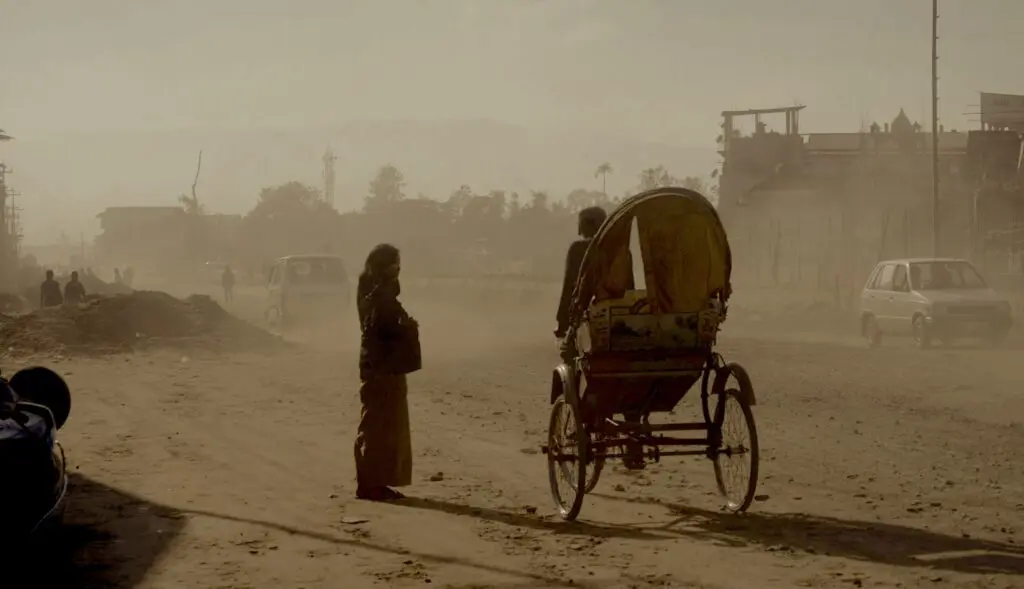Imphal as a Pond

Tonight as I embrace the palms of this city’s sunken face,
I feel an orator’s land calling me to listen to its story.
Consoling the agony of fires blazing around Imphal, I am holding a child as a sibling would want to,
while being unsure if I should answer when an infant calls for its mother because I am not one.
I hear each rubble bombarding her as vehicles get torched, buildings collapse, and a child is now an
orphan. I feed him with the spirits of all these unplastered buildings and broken roads that are now as
fine as rice.
I forget, I’ve lost my mother too.
Tires burned over her body lie silently in the curfew hours like carcasses of people who have nowhere to
return to. We stand with the living across the river, looking for our mother, who has left us for the other side.
These broken bridges that lie bleeding with loneliness lead us nowhere,
so I try wiping my sibling’s pain away with the handkerchief of my life.
Nothing here is putrid to me, for this is the fragrance of beautiful ruins after many take leave.
I admire them because they’re hurting from being ignored by those who still have homes,
and I know what that, too, feels like.
Leaving is the symbolic grit a place can offer, not the no-return just the distance to begin.
Life has been quite unkind to us, and Imphal, we’re all crossroads where no one actually stays forever.
They’re all flowing away, we rest on the shores unkempt by our fates.
My family is like the archipelago at Loktak, if not the chains of islands in the great ocean far beyond
[1]
[1]
Loktak Lake is in the northeastern Indian state of Manipur.
these mountains, in our separation, we yearn for one another, we yearn for water to connect us.
Wars in my mind never settle enough to feel a true yearning for my mother. I sometimes think I’ve
become a child who was never fondled by unconditional love.
Fleeing seems to be the only thing that I look forward to, Imphal, for what is home but ashes in the wind?
Here where our graves are dug by the agony even before we truly want to die, how do I miss and love a
city this unconditionally and still want to be alive for my young brother?
These loud sounds that begin to make us rest on the pavement and these hills glaring with the anger of
our grandparents make me feel restless.
This water world is one made up of defeated tears, so we the children are taught to play with fire.
I forget, I’ve lost my childhood too.
But my mother’s palms reach out and form a pond to drink from at the other end of time, and across
this distance, her resilience quenches our thirst.
Amid the bewilderment, there is no bardo yet—though this fabled land’s beauty seems cursed.
I am still here not wanting to make a pond of my palms, not wanting to cry.
To live for the ones who die young in this city
is to wait for the living to eventually die.
I wait for Imphal to be a pond again so that my brother can also see what a pond—and a mother—look like.



























